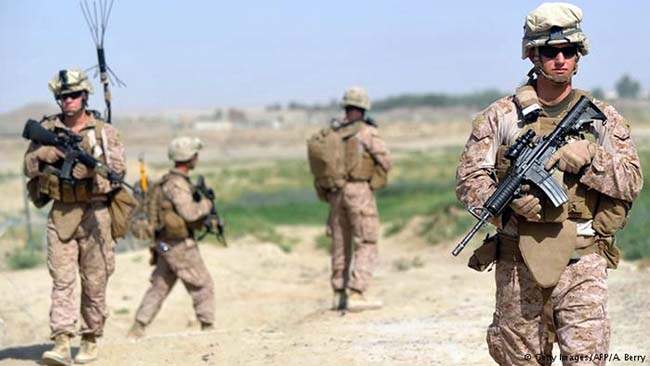Following four months, the US President Donald Trump declared his strategy regarding Afghanistan which included: First, calling the withdrawal of US troops from Iraq in 2011 an error and refusing its repetition. Second, considering the number of US soldiers and its strategy based on the political condition of Afghanistan. Third, backing Afghan army within the limited time. Fourth, warning Pakistan to stop supporting the militant groups. Fifth, keeping the enemies in dark from its programs.
A general view to the issue suggests that there has been no change in the US strategy about Afghanistan. It was self-explanatory that with spending more than one hundred billion dollars in Afghanistan, the US will not withdraw from Afghanistan in near future. Having several objectives in the region in general and in Afghanistan in particular, the US will have long-term presence in the region. Within the three recent decades, the US made error twice with withdrawing from Afghanistan and Iraq which led to emergence of the radical group of the Taliban in 1990s and self-styled Islamic State (IS) in recent years. This horrible experience for the US prompted its officials not to leave Afghanistan in the lurch. Therefore, Trump reiterates presence in Afghanistan so as to combat the Taliban and IS group. The next point which comes to the limelight is the number of the US soldiers and their sort of support that will be explained from two perspectives:
The first speculation is that Trump’s administration lacks a specific strategy about combating terrorism in Afghanistan. Therefore, it articulated its support generally and without further detail.
The second view is that the Trump’s administration tactfully declared its strategy without detail so as to be able to decide with considering the condition of Afghanistan. In short, the US, in such a way, will justify its presence in the country without obstacles.
The US restricted support to Afghan army was discussed during Trump’s presidential campaign. He constantly reiterated that the US support will not be “a blank check” and the US limited support aims to reinforcing Afghan forces and will not interfere in Afghanistan’s building nation or rehabilitating its economic and political infrastructures. According to him, it is Afghans to struggle for a good governance. This indicates that Afghan government should manage its internal affairs not the US. Despite this fact, America’s indifference towards Afghanistan’s internal affairs does not seem logical.
Trump’s warning to Pakistan is not a new issue either. In spite of being the US close ally and being paid financial aid for combating terrorism and radicalism, Pakistan had hand in glove with terrorists. Surprisingly, the trip of Pakistan’s foreign minister to the US was delayed following the declaration of recent strategy and even Pakistan held dialogue with China regarding the new strategy of the US. For winning war on terrorism, the US is in dire need of Pakistan; however, Pakistan has not proved its genuine fight against terrorism yet took credit from the international community. In addition, Pakistan’s close relationship with China will be the next bone of contention. Perhaps, the US will seek to restrict the role of regional powers and their coalition may not be acceptable for it. Supporting India, which is a Pakistan’s rival, is likely to be a proof in this regard.
The next point which was mentioned above is the secrecy of the US plans in terms of combating terrorism in Afghanistan. Stating that the enemies should be kept in dark about their plans and tactics, Trump claims that their victory in combating terrorism will come to fruition in Afghanistan. This fact has been disregarded that countries are able to predict political issues based on some signs and documents. Hence, this issue is not really effective.
Although the US strategy regarding Afghanistan includes no new issue, yet its decision not to leave Afghanistan in the lurch is positive considering the internal issues in the country. That is to say, this strategy will be able to create fresh hope for Afghan government in combating terrorism. But on the other hand, with the discontent of neighboring countries and their probable support to the Taliban, the proxy war might be intensified in the country.
Afghanistan’s attitude will be highly crucial in the current time. With the current opportunity, if the government decides with iron will to create stability, the country will experience a progress in this respect. But if the past does not be an eye-opener, the future of Afghanistan will be ambiguous. So, the government needs to learn from the past and combat terrorism fearlessly as it is doing so. Indeed, the role of Afghanistan is instrumental.
Home » Opinion » The US New Strategy and its Challenges in Afghanistan
The US New Strategy and its Challenges in Afghanistan
| Mohammad Hasan Faqiri

